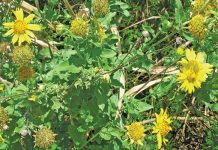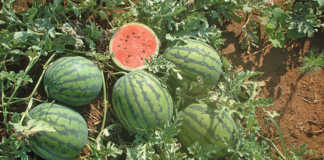This issue, we look at compost, and the advantages of using organic fertiliser. Organic fertiliser is less soluble than manmade commercial fertiliser and is less likely to pollute underground water sources. Because organic fertiliser releases nutrients slowly, it’s less likely to “burn”, or damage plants. It doesn’t need large amounts of water to “wash” the nutrients into the soil. There’s also less salt build-up in the soil. Too much salt in the soil is very bad for plants, as it makes it harder for water to move up the roots, causing plants to appear “burnt”, or dried out.
Compost as fertiliser
Compost is an example of the great circle of life, where nothing is wasted. Leaves, bits of old plants, manure and other organic materials come together in compost to feed your plants. Compost also helps keeps the soil alive, which further improves plant health. It helps prevent soil compaction – that “tightness” that’s bad for your plants – making it easier for water to move through it. It also keeps soil moist.
Compost allows you to get rid of unwanted waste safely, hygienically and easily. During the decomposing process in the compost heap, most weed seeds are killed as well. Compost can be used as mulch, the protective cover placed over the soil to retain moisture, reduce erosion, provide nutrients and prevent weed growth. You can apply compost at any time of the year, but for vegetables and annuals, it’s best to apply just before planting.
When using compost as mulch, apply it in summer in summer rainfall areas. For loam soil, add about 5â„“/m3 to 10â„“/m3 of soil and dig it in. Add more if you have sandy or clay soil. Always add compost to the soil before planting new plants.
Source: Water Wise by Rand Water.













